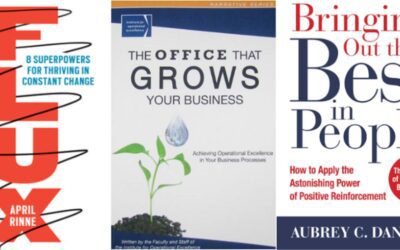By Ron Wolfe, Vice President and Senior Relationship Manager, KeyBank
Linda Hamilton, Vice President and Senior Relationship Manager for KeyBank
According to a study put out by the Pepperdine Private Capital Market’s report, the number one reason business owners contacted a broker or investment banker to sell their business in 2018 was due to retirement. Most business owners approach planning for the transition of their business as a highly secretive topic and assume if they take a low-key approach they won’t raise suspicion of their employees, suppliers, customers, competitors or even worse their banker. While it might come as a surprise to most business owners, everyone, including your banker knows that you’re getting older and at some point will eventually ride or sail off into the sunset to retire.
Regardless of whenever you decide to implement a transition plan, it makes sense to design, document and analyze different options, instead of finding yourself in a position where you are forced to implement some sort of transition. Businesses that are transaction-ready are more valuable and transferable than ones that are not, are better prepared if an unsolicited offer hits your desk and run more smoothly, are more fun to operate, and retain a higher percentage of employees.
Where to begin?
If you’re like most owners of privately owned businesses you’ve assembled a transition or succession plan in your head, but nothing is documented in writing. Getting the ball rolling on the process of developing a written business transition plan starts by answering the following key questions.
What amount of liquid capital do you need to achieve your personal financial goals?
Have you looked at your situation to assess how much you’ll need to accomplish your personal financial goals? It would be preferable to know today rather than at your retirement party if you have a “gap” between how much liquid wealth you need vs. what you currently have available vs. the value of your current net worth. While you may feel comfortable with crunching the numbers in your head, it may help your spouse to see a thoughtful and professionally prepared analysis on paper that takes into consideration inflation, life expectancy, charitable wishes, estate planning and a host of other items
There’s an incredible level of certainty and stress relief to know you’re going to have enough vs. just estimating what you’ll need or have available after transitioning the business to a successor.
What’s an estimate of your business’ “range of values”?
Most business owners realize the value of their business isn’t a static number but is dynamic and impacted by following: reason or motive behind the appraisal, buyer’s expected rate of return, and buyer’s access to capital markets. If a large majority of your wealth is tied up in your business, it becomes even more important to gauge what amount you objectively could expect to extract from your business. This will dictate what actions you need to pursue during the period prior to reaching your retirement date as the value of any business is assessed both by its past financial and operational performance and its future potential.
How does your mental and financial readiness impact your transition options?
The viability and success of both internal or external options is highly dependent upon how well various options fit with your goals, objectives and state of mind. The viable options will present themselves by assessing your mental and financial readiness. For example, if you’re completely burned out and dread going to work, then selling the business for any price might just be the best option. On the other hand, if you’re not ready to transition out of your business because you’re not mentally or financially ready, then you’ve got a few more options to consider.
Is the value and transferability of your business negatively impacted because it’s too dependent upon you?
The less your business depends on you, the higher it will appraise and the more transferable it is because any potential successor isn’t worried that the most important asset isn’t walking out the door the day after the closing.
The process of transitioning out of your business, just like descending down a mountain, requires different muscles, skill, and patience than was required to build a business or ascend a mountain. If your financial future independence, personal happiness, and legacy depend on a successful outcome you should consider beginning the process sooner rather than later. If you’re not ready to begin, then consider making an effort to answer the four questions posed above.
About the authors: Ron Wolfe is vice president and senior relationship manager for KeyBank. He may be reached by phone at 503-554-4183 or email at ron_j_wolfe@keybank.com.
Linda Hamilton is vice president and senior relationship manager for KeyBank. She may be reached by phone at 503-644-1943 or email at linda_r_hamilton@keybank.com.
This material is presented for informational purposes only and should not be construed as individual tax or financial advice. KeyBank does not provide legal advice. KeyBank is Member FDIC. KeyCorp.© 2019.CFMA #190708- 612549



